Part 1: Cultural quintessence of the Muong people
Mo Muong is considered a folk encyclopedia of the Muong people, with a huge number of Mo verses. Everything in Mo exists in the Muong people. Mo is the cultural quintessence, the spiritual support, contributing to the formation of the character and soul of the Muong people. This is considered a great creation of the Muong people and deserves to be honored.
Huge cultural heritage
Mo Muong is performed in important ceremonies.
Hoa Binh province (old) is the "capital" of the Muong people, accounting for about 64% of the population and was once named "Muong province". After the merger of the three provinces of Hoa Binh, Phu Tho, Vinh Phuc into the new Phu Tho province, the Muong ethnic group accounts for about 27%. The Muong people also reside in the neighboring provinces (Ninh Binh, Son La, Thanh Hoa) and Hanoi City, Dak Lak province when adjusting administrative boundaries and migrating. Over thousands of years, although only passed down orally, Mo Muong is still present in the lives of the people, becoming the sacred soul of the nation.
Mo is practiced in rituals associated with the religious life of the Muong people from birth to the time of returning to the Muong ghost. Any family in Muong land, rich or poor, when someone dies, invites a Mo master to perform a ceremony. Through an inventory in the Hoa Binh area, there are 23 rituals using Mo, most of which are in funerals, in addition to rituals to pray for blessings, health, exorcism, folk festivals... Muong Mo in terms of expression are storytelling Mo - epic Mo, ritual Mo, and visual Mo - describing the scene.
Muong Mo has a huge capacity with tens of thousands of verses and rhymes divided into Mo roongs and Mo cat (chapters, episodes) and has a profound influence and influence on all aspects of Muong people's life. Mo is made up of 3 main areas: Mo words and performance, performance environment, Mo artists; in which Mo words associated with Mo artists are the most important. Performance space in the community or family. During the ceremony, the Mo plays the role of a "clearing door" to the invisible world , guiding the souls of the deceased to their ancestors; conveying the thoughts, philosophies, and wishes of the Muong people. They are folk intellectuals, prestigious people in the community. When performing the ceremony, they always carry a bag containing antiques such as bronze bells, bones, and fierce animal fangs... collected and passed down from generation to generation for protection, which are also precious physical heritage.
Things in Mr. Mo's bag.
Many scholars at home and abroad have collected and researched Mo Muong. In the Hoa Binh region, according to collector Bui Thien, it takes 23 consecutive days of mo with 115 roong Mo, more than 44,000 verses to complete the Mo songs. For collector Bui Noi, there are more than 22,000 Mo verses; Bui Huy Vong collected about 10,000 verses. In the book "Mo Muong Hoa Binh" there are over 22,500 verses. The Mo Muong version in Thanh Hoa edited by Vuong Anh has more than 22,000 verses... |
From the studies have clarified the value and stature of Mo Muong. In the massive Mo poems, almost everything about Muong people, Muong culture and ancient Vietnamese people over thousands of years, including: all elements and types of folk culture; conveying beliefs, human values, human behavior, folk knowledge... The language in Mo is a Muong vocabulary with many ancient words that are valuable assets.
Worthy of world cultural heritage
Cultural, literary and anthropological research works have further depicted the vitality of Mo Muong. Mo reflects the outlook on life, the cosmology, and recreates human history - values that go beyond the ideology of a nation, such as the epic "Birth of the Earth, Birth of Water". Reflects the development of society, the relationship between people struggling to form a class society (the story of De Ta Cai, De Ta Can). Reflects the invention of fire; innovations in the process of creating life to survive and develop (the story of Xin Lua, De Bat, Sanh, Ninh, De Dau Den, De Tlong Thom, Lam Nha).
In Mo, there are also lessons about community and social life. These are lessons about solidarity (the story of Tim Chu and Tim Loi, pulling the Chu Dong tree to build a house, hunting animals); lessons about ingratitude leading to unpredictable consequences (the story of Burning the House of Dit Dang)... Many divine images in Mo are just shells, while their qualities have been humanized, with profound humanistic values.
Shaman Nguyen Van Tien has been involved in charity work for many years.
Shaman Nguyen Van Tien, Thong Nhat ward, is at a rare age but still very sharp, shared: Listening to and understanding the Mo stories deeply, one can see all the humanistic principles. Mo is not superstitious, but stands out for its teachings on being a human being, how to treat others, and how to stay away from bad habits... Especially, when Muong people encounter incidents, Mo supports their spirit to overcome them. Mo is a profession that does good deeds, passing on beauty to life.
For example, in Mo “Cuoi ly”, the deceased advised his descendants on good and right things: “You children stay behind in the future/ Love each other like water flowing from the same stream/ Don’t see someone else’s fat pig and dream of cutting it…”. Such priceless “wills” have nurtured the souls of the Muong people.
As a passionate researcher of Muong culture, excellent artisan Bui Huy Vong, Lac Son commune, concluded: Mo Muong is an outstanding cultural phenomenon, a typical and valuable cultural heritage, worthy of being honored at world-class level.
Many researchers and scholars at home and abroad also assess that Mo Muong is a great creation of the Muong people, converging almost all the values that make up Muong culture. Mo contributes to forming the character of the Muong people and the Muong land, as well as protecting and filtering Muong culture in all historical changes for its longevity. It is like a "Folk Encyclopedia" about the Muong people, containing cultural quintessence that needs to be thoroughly understood and deserves to be honored and passed down.
Cam Le
Source: https://baophutho.vn/mo-muong-tu-hon-thieng-xu-muong-huong-den-di-san-van-hoa-the-gioi-239605.htm


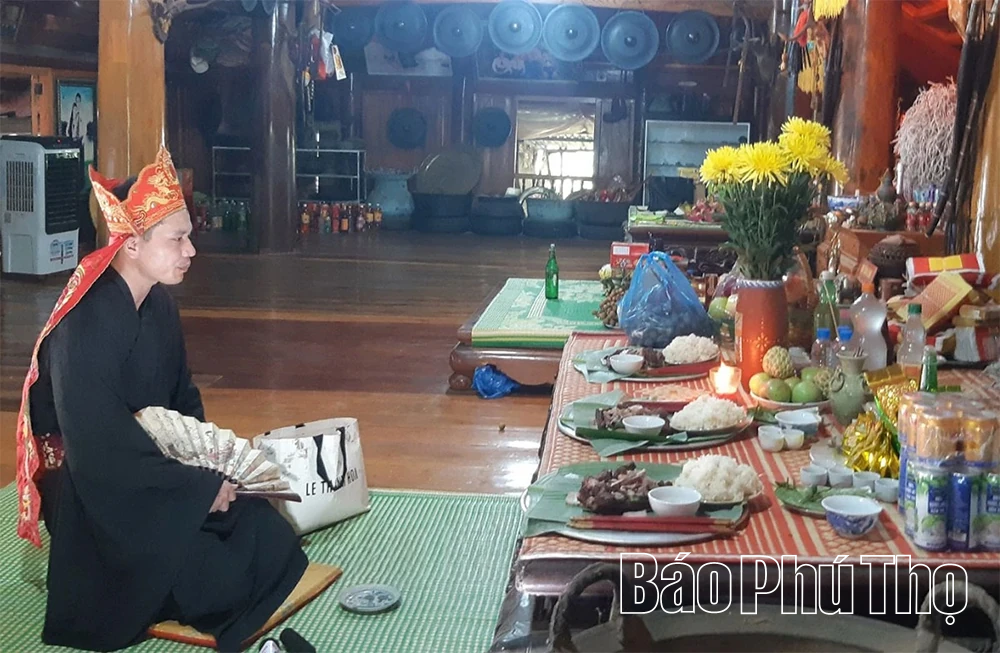
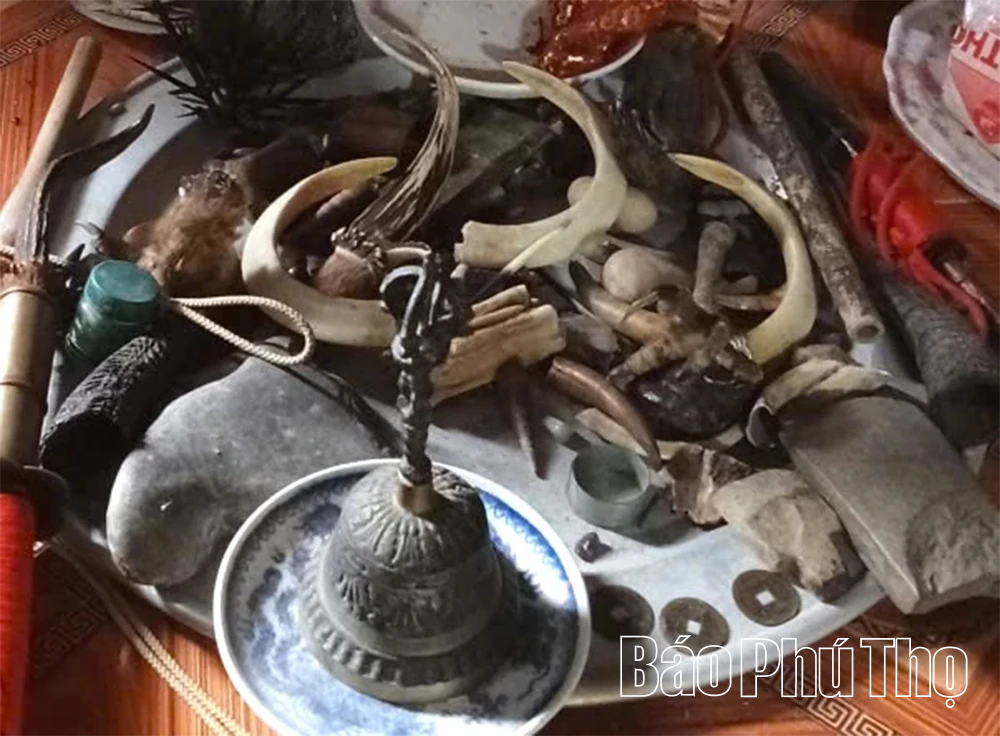
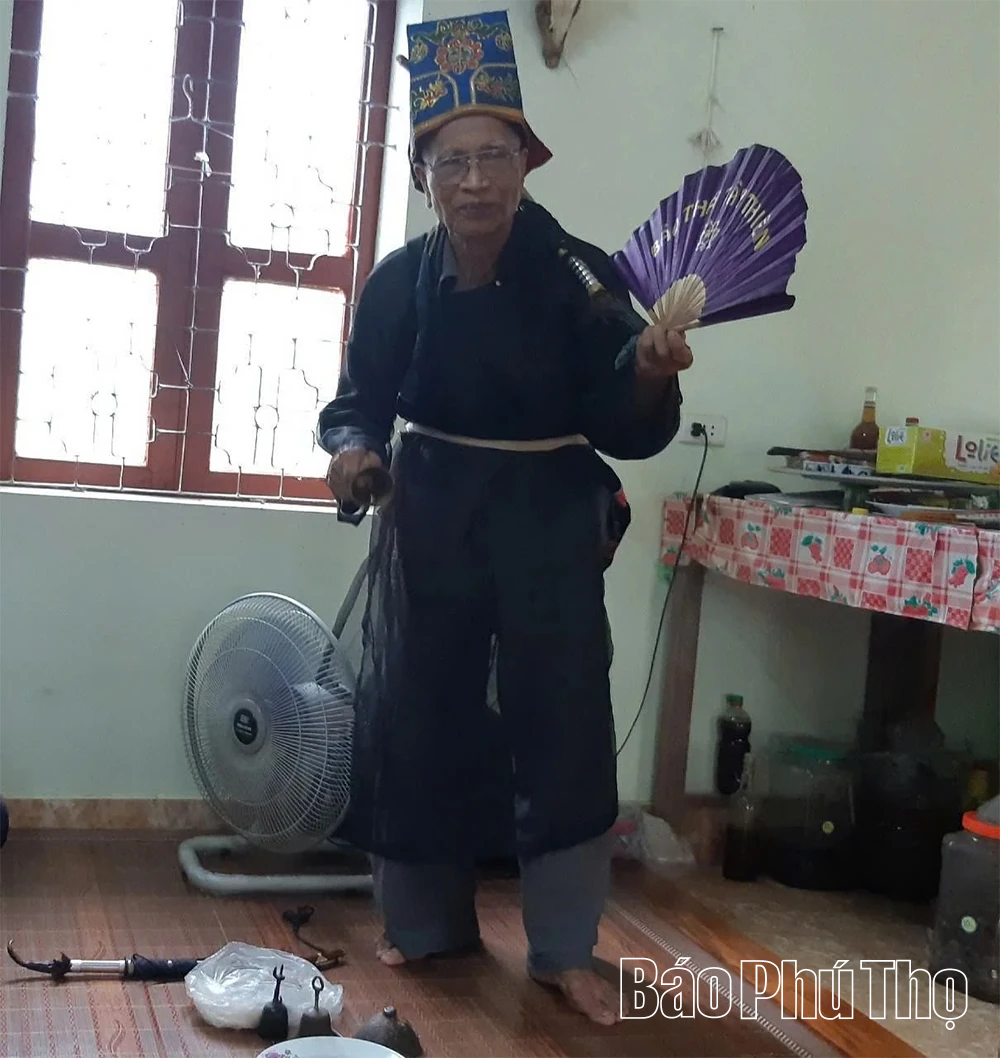

![[Photo] The 4th meeting of the Inter-Parliamentary Cooperation Committee between the National Assembly of Vietnam and the State Duma of Russia](https://vphoto.vietnam.vn/thumb/1200x675/vietnam/resource/IMAGE/2025/9/28/9f9e84a38675449aa9c08b391e153183)
![[Photo] High-ranking delegation of the Russian State Duma visits President Ho Chi Minh's Mausoleum](https://vphoto.vietnam.vn/thumb/1200x675/vietnam/resource/IMAGE/2025/9/28/c6dfd505d79b460a93752e48882e8f7e)

![[Photo] National Assembly Chairman Tran Thanh Man presided over the welcoming ceremony for Chairman of the State Duma of the Russian Federation Vyacheslav Volodin](https://vphoto.vietnam.vn/thumb/1200x675/vietnam/resource/IMAGE/2025/9/28/889b54ac5cd440099ddc618c99663612)















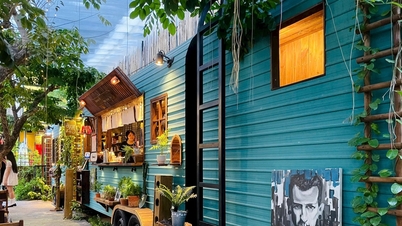













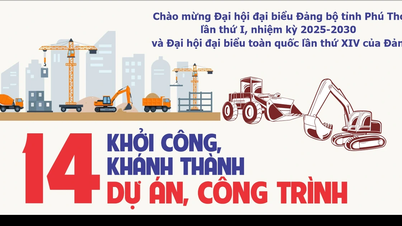

























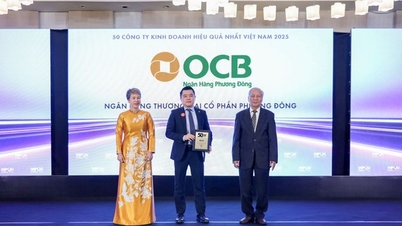





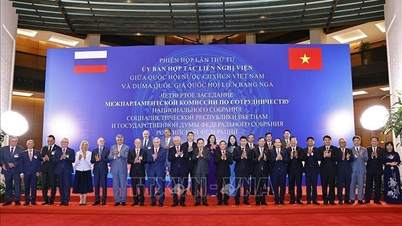


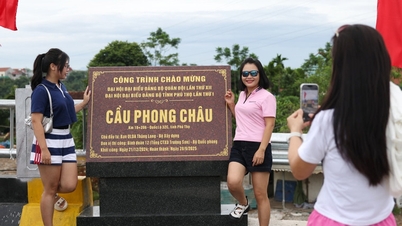








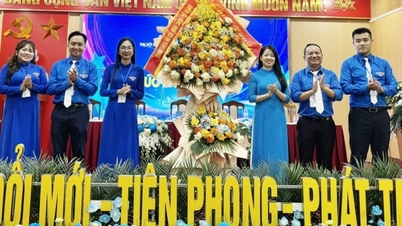
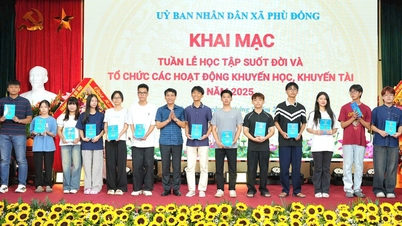
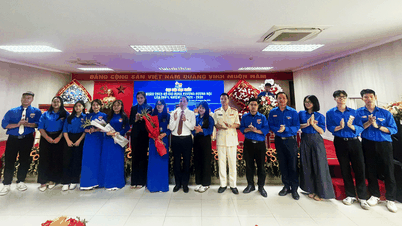
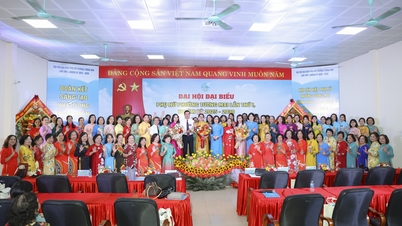

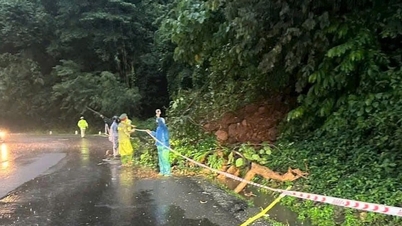











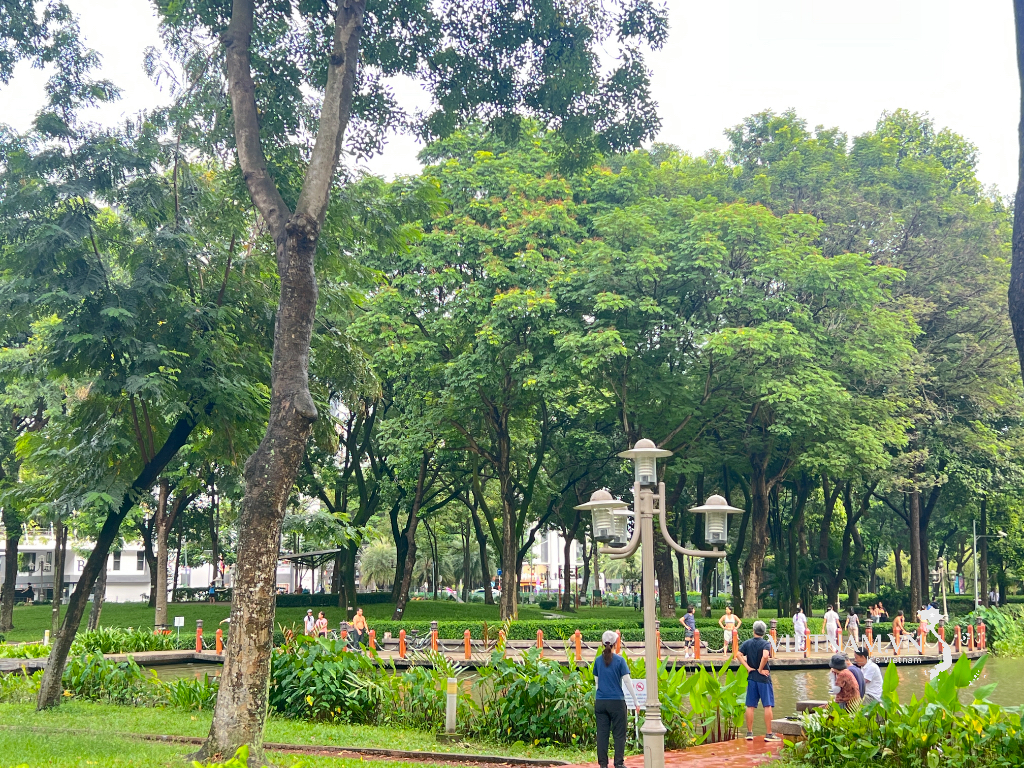
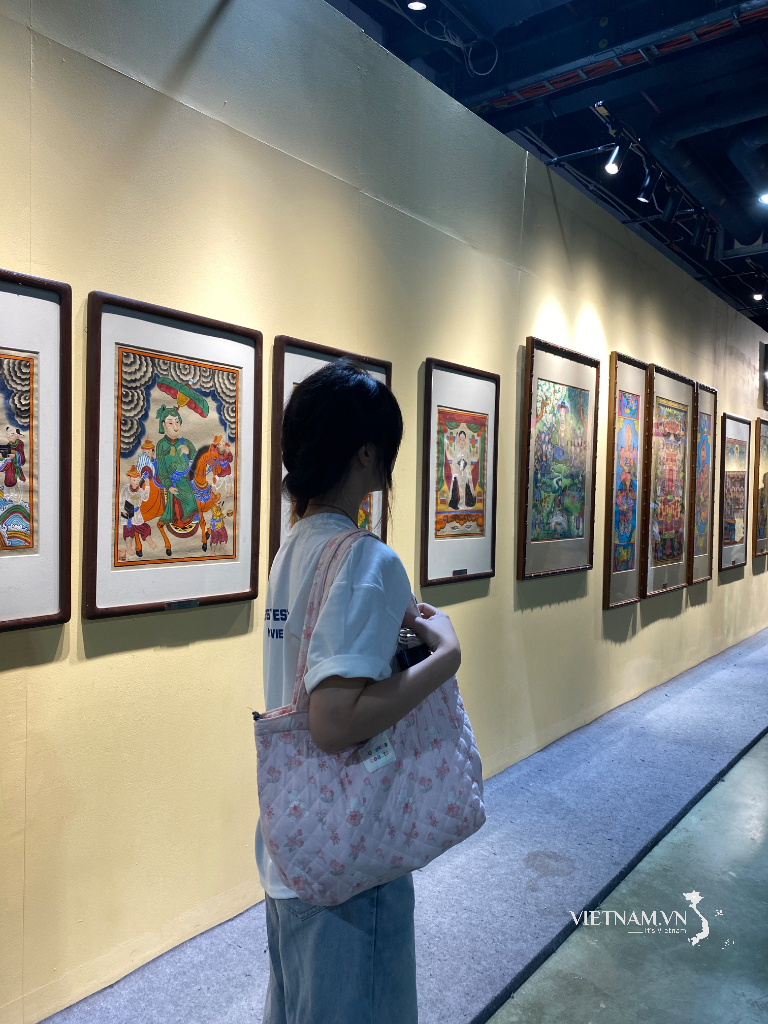

Comment (0)